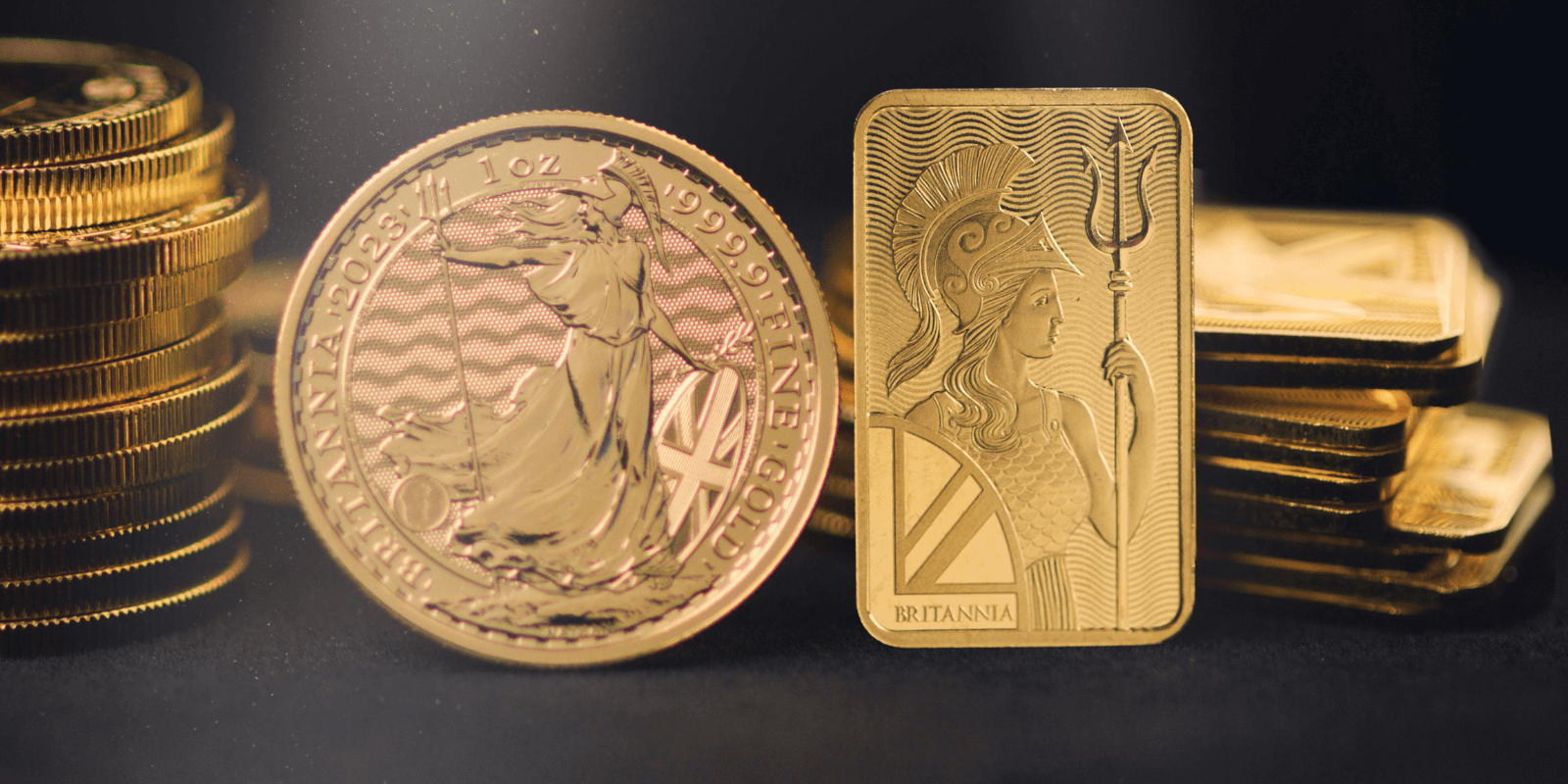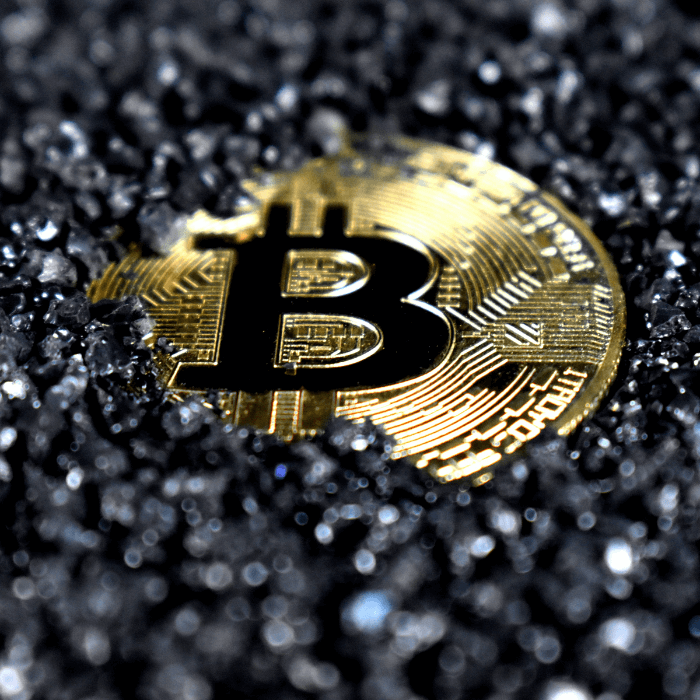Unchanged Interest Rates: What it Means for Gold
The Royal Mint
Category: Invest

As of 2 November 2023, both the Federal Reserve and the Bank of England have announced that their respective interest rates will remain unchanged, with the Federal Reserve maintaining a rate of 5.5% [1] and the Bank of England holding steady at 5.25-5.5% [2]. These decisions both align with market expectations and provide a sense of stability amid the prevailing economic challenges seen internationally.
In the previous September 2023 meeting, the Federal Reserve chose to maintain the target range for the federal funds rate at 5.25%-5.5%, a 22-year high. Federal Reserve Chair Powell commented during his speech at the Economic Club of New York that policymakers took a cautious approach, given the current economic challenges. Although he acknowledged that tight policies have contributed to the decrease in economic activity and inflation, Powell also highlighted that the current inflation levels remain uncomfortably high [3].
In a similar fashion, the Bank of England has maintained its base rate at 5.25%, creating a relatively high interest-rate environment that has continued for several months, with analysts predicting that this rate will remain throughout the current quarter. While there are possible forecasts of a gradual decrease in the long term, it is important to note that the Bank of England's rate decisions play a significant role in the overall economic landscape. Interest-rate decisions can have a significant impact on consumers, as detailed in a recent report by the Resolution Foundation and Financial Fairness Trust [4]. In this report, they suggested that recent rises in interest rates have contributed to ending ‘Britain’s wealth boom’ and may have caused total household wealth in the UK to plunge by a quarter since the Covid-19 pandemic.
In this article, we'll explore the implications of unchanged interest rates for gold and how this precious metal continues to be a relevant asset in times of economic uncertainty and inflationary pressures. We will also discuss how individual consumers may choose to include precious metals in their investment portfolio to insulate and protect their wealth from the wider effects of inflation.
The Interest Rate to Gold Dynamic
The relationship between interest rates and the price of gold is complex and often characterised by what is often suggested to be an inverse correlation. When central banks, like the Federal Reserve and the Bank of England, raise interest rates, they effectively increase the opportunity cost of holding certain assets, like gold and other precious metals. This is because precious metals do not generate interest or dividends and, in a rising interest-rate environment, alternative investments that offer yield start to become more attractive.
Conversely, when interest rates are lowered or remain low, as is the case now with unchanged rates, the opportunity cost of holding gold diminishes. Investors are less incentivised to hold assets that may not yield returns comparable to interest-bearing investments. In such circumstances, gold tends to gain appeal as a store of value, particularly in the face of economic uncertainty, inflationary pressures, or geopolitical instability.
As detailed in recent monthly market roundup articles, central banks across the world are currently adding gold to their reserves, often in significant amounts. In addition to this, in the current economic climate, central banks are also cautious about further tightening monetary policy and, as such, gold may benefit from the persistence of low interest rates. Investors seeking both a hedge against inflation and a safe-haven asset may continue to turn to gold, contributing to its stability and attractiveness as an investment.
Gold as an Inflation Hedge
One of the primary reasons investors turn to gold, especially during times of unchanged interest rates, is its role as a hedge against inflation. Inflation is said to erode the purchasing power of traditional currencies, making assets like cash less valuable over time. Gold, on the other hand, has a long history of preserving its value in the face of rising prices and, as such, is said to be an inflation hedge.
The ongoing ‘cost-of-living crisis’ seen in many economies, coupled with persistently high inflation rates have heightened concerns among investors. When central banks decide to keep interest rates steady, it can be seen as a measured response to control inflation without causing economic shocks. In such an environment, the appeal of gold as a safe-haven asset and an inflationary hedge becomes even more pronounced.
Investors often view gold as a tangible asset that can retain its value and purchasing power over the long term, helping to protect their wealth from the erosive effects of inflation. This perception makes gold a sought-after asset class when traditional currencies are facing challenges, further solidifying its status as a store of value amid unchanged interest rates.

Diversification Benefits of Gold
Investors recognise gold not only for its ability to hedge against inflation but also for its potential to enhance diversification in investment portfolios. In a climate of unchanged interest rates, where traditional asset classes like stocks and bonds may experience heightened volatility, gold is often said to offer a somewhat unique advantage.
Gold's price movements often display a low correlation with those of other assets, such as equities or fixed-income securities. This low correlation implies that gold tends to move independently from conventional financial markets. Therefore, including gold in a diversified investment portfolio can help spread risk and reduce overall volatility within a wider investment portfolio.
Geopolitical and Economic Uncertainty
Even in the context of unchanged interest rates, the world remains rife with geopolitical and economic uncertainties. Trade tensions, political instability, supply-chain disruptions and global conflicts persist as prominent risk factors, all of which have the potential to impact investments in both the short and long term.
Traditionally, investors turn to gold as a means of safeguarding their wealth during turbulent times because its historical reputation as a store of value is rooted in its ability to retain worth when traditional currencies and financial markets falter. The absence of interest-rate hikes can further solidify gold’s position as a go-to asset in times of uncertainty.
Conclusion
In today's economy, central banks such as the Federal Reserve and the Bank of England have decided to keep interest rates unchanged despite the ongoing economic challenges. In such a scenario, gold still proves to be a reliable and significant investment. Its unique properties, such as its ability to act as an inflation hedge, its diversification benefits and its appeal during times of economic and geopolitical uncertainty, continue to attract investors who seek stability and want to preserve their wealth.
As the financial landscape evolves and market dynamics shift, gold's enduring appeal as a safe-haven asset reminds us of its crucial role in preserving wealth and providing stability during uncertain times. In the face of unchanged interest rates, gold's allure as a reliable and valuable asset only grows brighter.
References
- Bank of England base rate - https://www.bankofengland.co.uk/monetary-policy/the-interest-rate-bank-rate
- Federal Reserve Rate - https://www.investing.com/economic-calendar/interest-rate-decision-168
- Powell speech – 19 October 2023 - https://www.federalreserve.gov/newsevents/speech/powell20231019a.htm
- A wealth of variety: The variation in household wealth across Britain and what it means for policy https://www.resolutionfoundation.org/publications/a-wealth-of-variety/
The contents of this article, accurate at the time of publishing, are for general information purposes only, and do not constitute investment, pensions, legal, tax or any other advice. Before making any investment or financial decision, you may wish to seek advice from your financial, pensions, legal, tax and/or accounting advisors.




